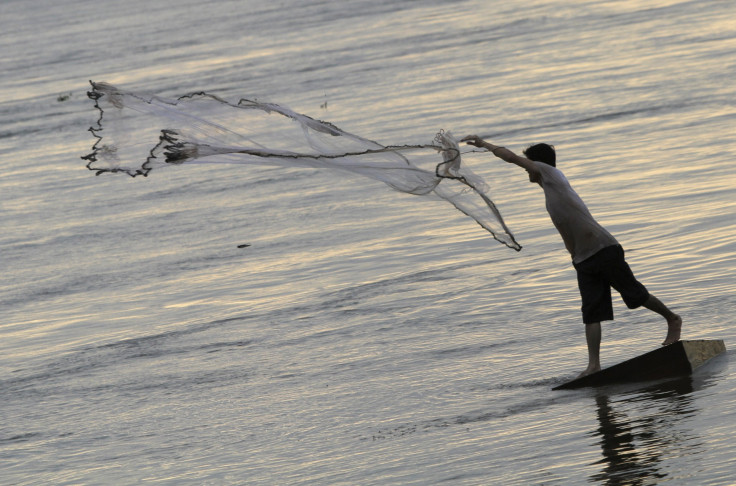A River Trickles Through It: Laos' Mekong Dam Draws Ire From Downstream Neighbors And Environmentalists

Laos’ construction of a hydropower dam on the Mekong River has angered its downstream neighbors and raised concerns about the project’s social and environmental impacts.
Construction of the $3.5 billion Xayaburi Dam began last November. It is the first of 11 projects the Laotian government plans to build along the lower portion of the river, which passes through Cambodia, Vietnam and Thailand.
Laos has drawn criticism from its Southeast Asian neighbors for beginning construction on the Xayaburi Dam without completing the consultation process through the Mekong River Commission, or MRC, an inter-governmental agency comprised of representatives from the four countries that manages the usage and development of the river.
Vietnam’s Deputy Minister of Natural Resources and Environment Hong Ha Tran spoke Wednesday at an MRC Council Meeting in Luang Prabang, Laos, and he questioned the wisdom of beginning the Xayaburi project before a thorough analysis of its impact was completed.
“The launching of the first mainstream hydropower project recently in the Lower Mekong Basin is causing concerns of the governments of the riparian [river-adjacent] countries in the region and the international community about its adverse impacts on downstream areas,” he said.
“While we are still trying to do the research to understand its impacts, each riparian country should show their responsibility by assuring that any future development and management of water resources proposed in the basin should be considered with due care and full precaution based on best scientific understanding of the potential impacts,” he added.
Vietnam has demanded that Laos halt construction on the Xayaburi dam, pending the completion of an environmental impact review agreed upon by the MRC in December 2011.
The MRC Development Partners, which is comprised of donor governments -- including the U.S., Japan, Germany and France -- that have invested in the Mekong River’s management, released a joint statement expressing concern about any damming of the river’s main channel, upon which the Xayaburi damn is being built.
“It is our consensus that building dams on the mainstream of the Mekong may irrevocably change the river and hence constitute a challenge for food security, sustainable development and biodiversity conservation,” the statement read, according to a press release from International Rivers, a global NGO that advocates for the conservation and sustainable development of river systems.
Extensive research has already shown that dams are extremely disruptive to river ecosystems and riparian communities on multiple levels.
Damming prevents fish migrations, which downstream communities depend on for food. It also prevents rivers from transporting sediments, “which are critical for maintaining physical processes and habitats downstream of the dam (including the maintenance of productive deltas, barrier islands, fertile floodplains and coastal wetlands),” according to International Rivers.
This has negative implications for farmland and fresh water wells used by communities along river systems.
While these impacts are being considered with the Xayaburi Dam, Laos is relatively free to continue construction unhindered. Under the statutes of the MRC, Laos is obligated to hold consultations with member governments on such projects, but members have no legal framework to prevent it from moving forward with any given one.
"In the absence of an agreement, other countries can disagree if they like, but this can't stop Laos," said Jian-hua Meng, a specialist in sustainable hydropower at the World Wildlife Fund, the Guardian reported. "The role of the MRC is now being questioned along with the level of investment put in the organization."
© Copyright IBTimes 2024. All rights reserved.







